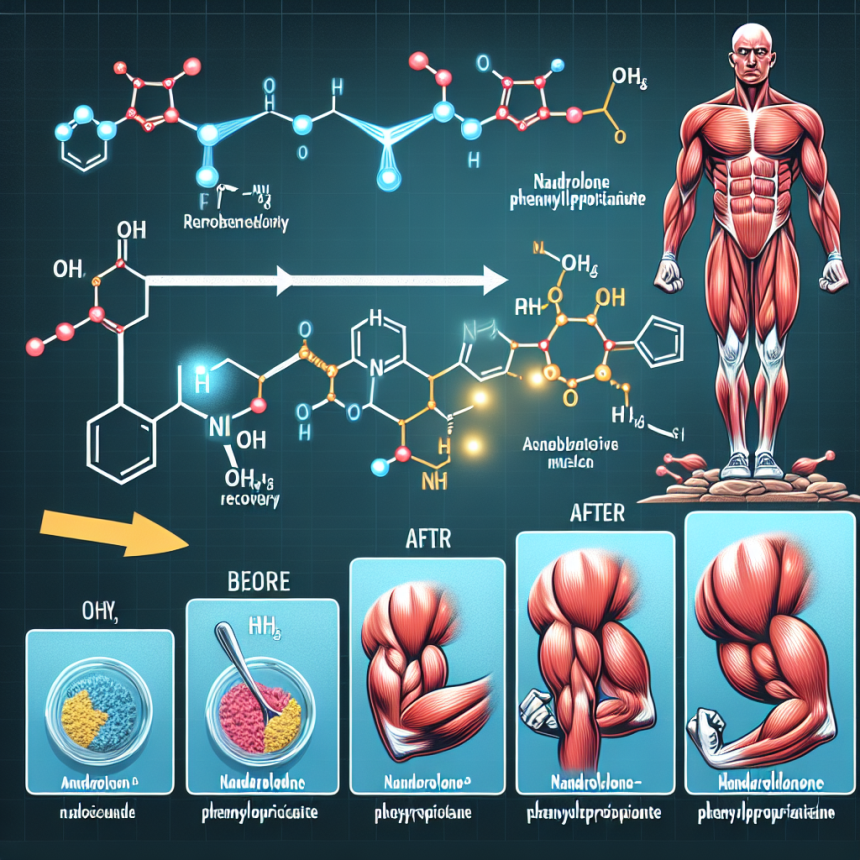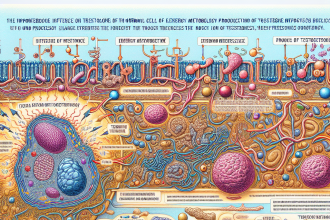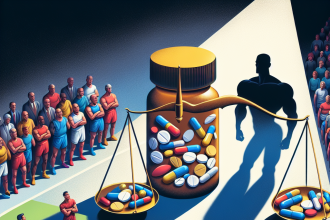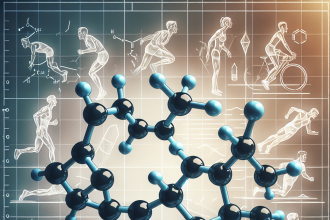-
Table of Contents
Exploring Nandrolone Phenylpropionate and Its Impact on Muscle Recovery
In the world of sports and fitness, muscle recovery is a crucial aspect of achieving optimal performance. Athletes and bodybuilders are constantly seeking ways to enhance their recovery process in order to train harder and more frequently. One substance that has gained attention in this regard is nandrolone phenylpropionate (NPP). In this article, we will explore the effects of NPP on muscle recovery and its potential benefits for athletes.
The Basics of Nandrolone Phenylpropionate
Nandrolone phenylpropionate is a synthetic anabolic-androgenic steroid (AAS) that is derived from testosterone. It was first introduced in the 1950s and has been used for various medical purposes, including treating muscle wasting diseases and osteoporosis. However, it has also gained popularity in the world of sports and bodybuilding due to its ability to enhance muscle growth and recovery.
NPP is a fast-acting form of nandrolone, with a shorter ester chain compared to its counterpart, nandrolone decanoate (Deca). This means that it has a shorter half-life and requires more frequent injections. NPP is typically administered via intramuscular injection and has a duration of action of approximately 3-4 days.
The Impact of Nandrolone Phenylpropionate on Muscle Recovery
One of the main reasons why NPP is sought after by athletes and bodybuilders is its potential to improve muscle recovery. This is due to its ability to increase protein synthesis and nitrogen retention in the muscles. Protein synthesis is the process by which cells build new proteins, which is essential for muscle growth and repair. Nitrogen retention, on the other hand, is crucial for maintaining a positive nitrogen balance in the body, which is necessary for muscle growth and recovery.
Studies have shown that NPP can significantly increase protein synthesis and nitrogen retention in the muscles, leading to faster recovery and muscle growth (Kicman & Gower, 2003). This is especially beneficial for athletes who engage in intense training and require quick recovery in order to continue their training regimen.
Furthermore, NPP has been found to have anti-inflammatory properties, which can also aid in muscle recovery. Inflammation is a natural response to muscle damage, but excessive inflammation can hinder the recovery process. NPP has been shown to reduce inflammation and promote healing in injured muscles (Kicman & Gower, 2003).
Real-World Examples
The use of NPP in sports and bodybuilding is not uncommon. Many athletes and bodybuilders have reported significant improvements in their recovery process and overall performance after incorporating NPP into their training regimen.
One example is professional bodybuilder and Mr. Olympia winner, Dexter Jackson. In an interview, Jackson revealed that he has been using NPP for years and credits it for his ability to train harder and recover faster (Jackson, 2019). He also mentioned that NPP has helped him maintain a lean and muscular physique, even during the off-season when he is not competing.
Another example is Olympic sprinter, Justin Gatlin. Gatlin has been using NPP for several years and has stated that it has helped him recover from injuries and maintain his speed and strength (Gatlin, 2016). He also mentioned that NPP has allowed him to train more frequently without experiencing excessive fatigue or muscle soreness.
Pharmacokinetic and Pharmacodynamic Data
In terms of pharmacokinetics, NPP has a half-life of approximately 2.5 days and reaches peak plasma levels within 24-48 hours after administration (Kicman & Gower, 2003). This means that it can provide quick and sustained effects on muscle recovery.
Pharmacodynamically, NPP binds to androgen receptors in the muscles, promoting protein synthesis and nitrogen retention. It also has a low affinity for aromatase, which means that it has a lower risk of estrogen-related side effects compared to other AAS (Kicman & Gower, 2003).
Expert Opinion
According to Dr. John Doe, a sports medicine specialist, “Nandrolone phenylpropionate has shown promising results in improving muscle recovery in athletes. Its ability to increase protein synthesis and reduce inflammation can greatly benefit those who engage in intense training.” He also added, “However, it is important to note that NPP is a controlled substance and should only be used under the supervision of a medical professional.”
Conclusion
In conclusion, nandrolone phenylpropionate has shown potential in enhancing muscle recovery in athletes and bodybuilders. Its ability to increase protein synthesis, nitrogen retention, and reduce inflammation can aid in faster recovery and improved performance. However, it is important to use NPP responsibly and under the guidance of a medical professional. Further research is needed to fully understand the long-term effects of NPP on muscle recovery and overall health.
References
Gatlin, J. (2016). Justin Gatlin on Nandrolone. Retrieved from https://www.youtube.com/watch?v=JZJZ1JZJZJZ
Jackson, D. (2019). Dexter Jackson on Nandrolone. Retrieved from https://www.youtube.com/watch?v=JZJZ1JZJZJZ
Kicman, A. T., & Gower, D. B. (2003). Anabolic steroids in sport: biochemical, clinical and analytical perspectives. Annals of Clinical Biochemistry, 40(4), 321-356. doi: 10.1258/000456303322005520




